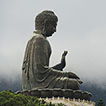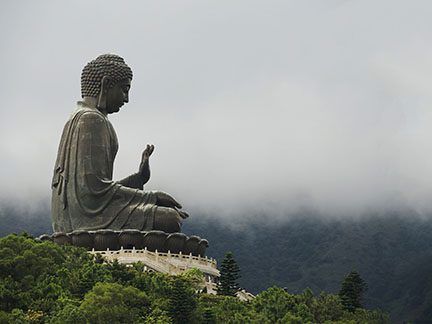What You Need to Know:
Ministering to Buddhists of the Theravada Tradition

1. Befriending is key. Friendship in the Asian context always requires a willingness to go the extra mile or two without counting the cost. Such a relationship not only requires much time, effort, and resources but also a willingness to be used up in service to Christ.
2. Earn the right to share the gospel. Rather than imposing from a position of superiority, move with a servant heart. When your actions are loud enough they are going to want to know why you do what you do.
3. Be patient. Do not think in terms of days but in months and years. First try to understand their beliefs and values with a sincere motive. Theological concepts like monotheism and the cross are completely alien to Buddhists. Put yourself in their shoes.
4. Instill a sense of trust. Once your bonds reach a level of mutual trust and openness, you will be free to discuss anything from politics to religion.
5. Understand their felt needs. Their felt needs are usually not what you see on the surface. Practice looking for and discerning that which is hidden and subtle.
6. Consider the community. Asian communities function much differently than Western communities. Rarely would a decision to follow Christ be made in isolation from the community in an Asian culture.
7. Wait for readiness. When they are ready to seek, then your role is to help find truth (not pounce). The Holy Spirit will gently accomplish his task. Remember you are just a vessel.
 8. Expect benevolence. Most Buddhists living in the US are peace-loving, hard working, law-abiding people. They can also be fun-loving and enjoy outdoor activities. Look for opportunities to organize or participate in community activities. For example, Buddhists often enthusiastically support blood donation campaigns.
8. Expect benevolence. Most Buddhists living in the US are peace-loving, hard working, law-abiding people. They can also be fun-loving and enjoy outdoor activities. Look for opportunities to organize or participate in community activities. For example, Buddhists often enthusiastically support blood donation campaigns.
9. Look for godly qualities. For example Buddhists would generally consider it below their dignity and a terrible evil to have their elderly parents placed in a nursing home. Much respect and consideration are shown to the elderly. This is one area where the Buddhist family truly demonstrates the sacrificial love Western Christians only speak about.
10. Do not assume a blank slate. You may find Buddhists have been exposed to the gospel in some form or shape. For example, Sri Lanka was under foreign rule for 450 years with the Portuguese, Dutch, and British being in control for nearly 150 years each. The impact of these influences, good and bad, cannot be discounted.









comments